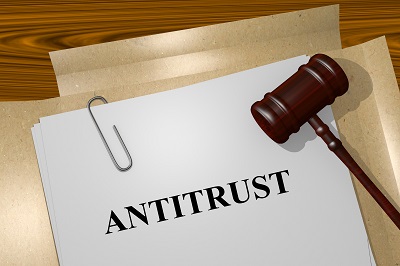Connecticut CLE | Choose Your Plan | Search for a Course

Connecticut MCLE Requirements:
Attorneys in Connecticut must complete 12 hours of CT MCLE (Mandatory Continuing Legal Education) every year, including at least 2 hours of ethics or professionalism. These credits can be earned through Connecticut Bar–approved live seminars, webinars, or on-demand courses, offering flexibility to fit busy schedules. Attorneys are required to complete and certify their compliance by December 31 each year, and failure to meet CT MCLE requirements may result in fines or administrative suspension. Click Here for the Detailed CT CLE Article | Click here to Visit the CT MCLE Board.
How to Obtain CLE Credit for a Knowledge Group Course in Connecticut:
To earn CLE credit with The Knowledge Group, complete the video courses, answer the secret word questions, and download your Certificate of Attendance. All courses are approved through reciprocal accreditation in Connecticut. As an accredited provider in California, The Knowledge Group’s courses are presumptively approved.
Attendance Reporting Procedure: The Knowledge Group does not submit attendance report to Connecticut MCLE Commission. Attorneys are responsible for keeping track of their own CLE credits. Certify your attendance as you would normally do directly to your state’s MCLE administrator.
Additional Resources: The Knowledge Group Comprehensive CLE Rules Page or contact CLE support.
ConnecticutCLE | Search for Single Courses
Antitrust Appellate Decisions | On-Demand CLE Antitrust Webinar
Mary Helen Wimberly Partner | Axinn, Veltrop & Harkrider LLP Key Appellate...
ITC Section 337 Investigations 2020 | On-Demand Webinar
Jordan Coyle Partner | Orrick Herrington & Sutcliffe LLP Ryan Herrington Senior...
Future-Proofing Class Action Administration | Live CLE Class Action Webinar
Stefan Boedeker Partner | StoneTurn Frank A. Zacherl Partner | Shutts &...
LGBT+ Diversity in Legal Practice | On-Demand CLE Diversity, Inclusion, and Elimination of Bias Webinar
Bianca LoGiurato Associate | Pullman & Comley LLC M. Dru Levasseur, Esq....
Comprehensive Guide Toxic Tort Litigation | On-Demand Webinar
Timothy Krippner Shareholder | Segal McCambridge Singer & Mahoney, Ltd. Michele C....
AI Patent Eligibility: USPTO’s Latest Guidance | On-Demand CLE Patent Law Webinar
Robert Plotkin Software Patent Lawyer & Founding Partner | Blueshift IP, LLC...
Effective Ethics Guide for Lawyers | On-Demand Webinar
Joel Frank Chairman / Managing Partner | Lamb McErlane PC Amir Tahmassebi...
Demystifying Discretionary Denials PTAB | On-Demand Webinar
Philip Hirschhorn Partner | Panitch Schwarze Belisario & Nadel LLP Brian Murphy...
Pre-Trial and Evidentiary Hearings | On-Demand Webinar
Kathleen Massimo Partner | Houser LLP Christopher Cianci Senior Associate | Lagasse...
Understanding CT CLE Requirements for Attorneys: A Complete Guide
Attorneys practicing in Connecticut must maintain their professional knowledge and ethical standards through CT CLE—Connecticut’s Continuing Legal Education program. This system ensures that lawyers remain competent, ethical, and up to date with evolving laws and professional practices. For both new and experienced attorneys, understanding CT CLE requirements is essential to maintaining an active license and avoiding compliance issues or penalties.
CT CLE Requirements for Connecticut Attorneys
The Connecticut Judicial Branch’s Commission on Minimum Continuing Legal Education requires all active attorneys to complete 12 hours of CT CLE every year. These hours are structured to promote both professional development and ethical accountability, and they include a specific sub-requirement:
• 2 hours of Ethics and Professionalism
The remaining 10 hours may cover any area that enhances an attorney’s legal competence, including substantive law, practice management, or client communication. This structure ensures that CT CLE fosters a balanced approach to education—one that supports both technical skill and ethical conduct throughout an attorney’s career.
How to Complete CT CLE Credits
Attorneys can complete CT CLE credits through various approved formats, making it convenient for busy practitioners to stay compliant. Traditional in-person seminars offer valuable opportunities for live interaction and networking, while online and on-demand options provide flexibility and accessibility.
Approved formats for CT CLE include:
• Live Webinars and Virtual Seminars – Participate remotely while still engaging with presenters in real time.
• On-Demand and Recorded Programs – Complete courses at your own pace before the reporting deadline.
• In-Person and Hybrid Programs – Combine classroom learning with online participation for convenience.
Attorneys must ensure that the courses they take are accredited and meet CT CLE standards. The Connecticut Judicial Branch allows flexibility in choosing courses, provided they are designed to improve legal knowledge and professional skills. Attorneys are encouraged to select topics relevant to their areas of practice to maximize professional benefit.
CT CLE Reporting and Deadlines
Reporting CT CLE completion is simple but must be done accurately and on time. Attorneys must complete their 12 required hours by December 31 each year and certify compliance by March 31 of the following year through the Judicial Branch’s Attorney Registration system.
Failure to complete or properly report CT CLE requirements may result in administrative penalties or noncompliance status. Attorneys should keep documentation of course completion, including certificates and attendance records, for at least seven years in case of audit. While some CLE providers report attendance directly to the Commission, each attorney bears ultimate responsibility for ensuring their credits are correctly reported.
Value of CT CLE
Beyond fulfilling a mandatory requirement, CT CLE plays a vital role in promoting continuous professional growth. Attorneys can use the program to sharpen their expertise, adapt to new laws, and explore innovative areas of practice.
For example:
• Business attorneys may focus on corporate governance, contracts, and compliance.
• Family law practitioners can enhance their understanding of custody, mediation, and equitable distribution.
• Litigators can refine trial advocacy, evidence handling, and negotiation skills.
Ethics and professionalism courses under CT CLE emphasize the importance of maintaining integrity, confidentiality, and civility in practice. Connecticut’s focus on ethical education ensures that attorneys not only stay informed about legal changes but also uphold the highest standards of professionalism and client service.
Conclusion | CT CLE
In conclusion, CT CLE is more than a regulatory requirement—it is a cornerstone of professional competence and ethical responsibility for Connecticut attorneys. By completing accredited courses, tracking credits carefully, and meeting reporting deadlines, lawyers can stay compliant while continually enhancing their legal expertise and professionalism.
Through CT CLE, Connecticut attorneys demonstrate a strong commitment to lifelong learning, client service, and the ethical practice of law—ensuring that the state’s legal community continues to uphold the highest standards of integrity and public trust.
For the latest official CT CLE details, forms, and FAQs, attorneys should visit the Connecticut State Unified Court System’s CLE Board website.












